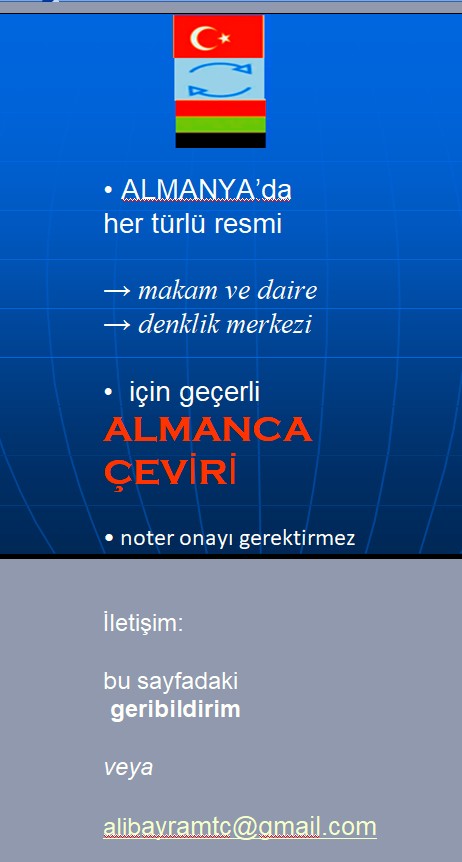it
it
1. Cinsiyeti bilinmediğinde ya da önemsiz olduğunda çocukları belirtmek için kullanılır.
Where is the baby? It is asleep upstairs.
Bebek nerede? Üst katta uyuyor.
The baby has dropped its food.
Bebek mamasını düşürdü.
2. Kişi ya da kişileri belirtmek için kullanılır.
Who is at the door? It's the postman.
Kapıdaki kim? Postacı.
Who is shouting so loudly? It's the children.
Kim öyle yüksek sesle bağırıyor? Çocuklar.
3. Hava durumunu belirtmek için kullanılır.
It is cold today.
Bugün hava soğuk.
4. Saat ve tarih belirtmek için kullanılır.
What time is it? It's seven o'clock.
Saat kaç? Saat yedi.
What's the date? It's the second of June.
Bugün ayın kaçı? Haziranın ikisi.
5. Uzaklık belirtir.
It is not far to the station.
İstasyon uzak değil.
How far is it to Piccadilly Circus?
Piccadilly Circus buradan ne kadar uzak?
6. Tümcenin istenilen bir birimini belirtmek için kullanılır. Aşağıdaki örneklerde Martin took Hilda to the zoo on Sunday (= Martin pazar günü Hilda'yı hayvanat bahçesine götürdü.) tümcesinin çeşitli öğeleri vurgulanmıştır.
It was Martin who took Hilda to the zoo on Sunday.
Hilda'yı pazar günü hayvanat bahçesine götüren Martin'di.
It was Hilda that Martin took to the zoo on Sunday.
Martin pazar günü hayvanat bahçesine Hilda'yı götürdü.
It was to the zoo that Martin took Hilda on Sunday.
Martin Hilda'yı pazar günü hayvanat bahçesine götürdü.
It was on Sunday that Martin took Hilda to the zoo.
Martin Hilda'yı hayvanat bahçesine pazar günü götürdü.
7. It zamiri gerçek öznenin yerini geçici olarak tutabilir.
a) Gerçek özne mastar (grubu) olabilir.
It isn't easy to see the details here.
Burada ayrıntıları görmek kolay değil.
It is expensive to go there by plane.
Oraya uçakla gitmek pahalı.
b) Gerçek özne ulaç (= gerund) olabilir.
It's so nice seeing you again.
Seni yeniden görmek çok kolay.
It's so sad seeing him like this.
Onu böyle görmek çok üzücü.
c) Gerçek özne bir yantümce olabilir.
It is strange that he didn't come in time.
Vaktinde gelmemesi tuhaf.
It is doubtful whether he'll be able to pay his debt.
Borcunu ödeyip ödeyemeyeceği kuşkulu.
8. Bir fiilden sonra gelerek nesne olan it zamiri, geçici olarak bir fiilin ya da bir yantümcenin yerini alabilir.
He finds it difficult to pronounce some English words.
Bazı İngilizce sözcükleri telaffuz etmeyi zor buluyor.
He thought it unsuitable to ask for a loan from her.
Ondan borç istemenin yakışık almayacağını düşündü.


